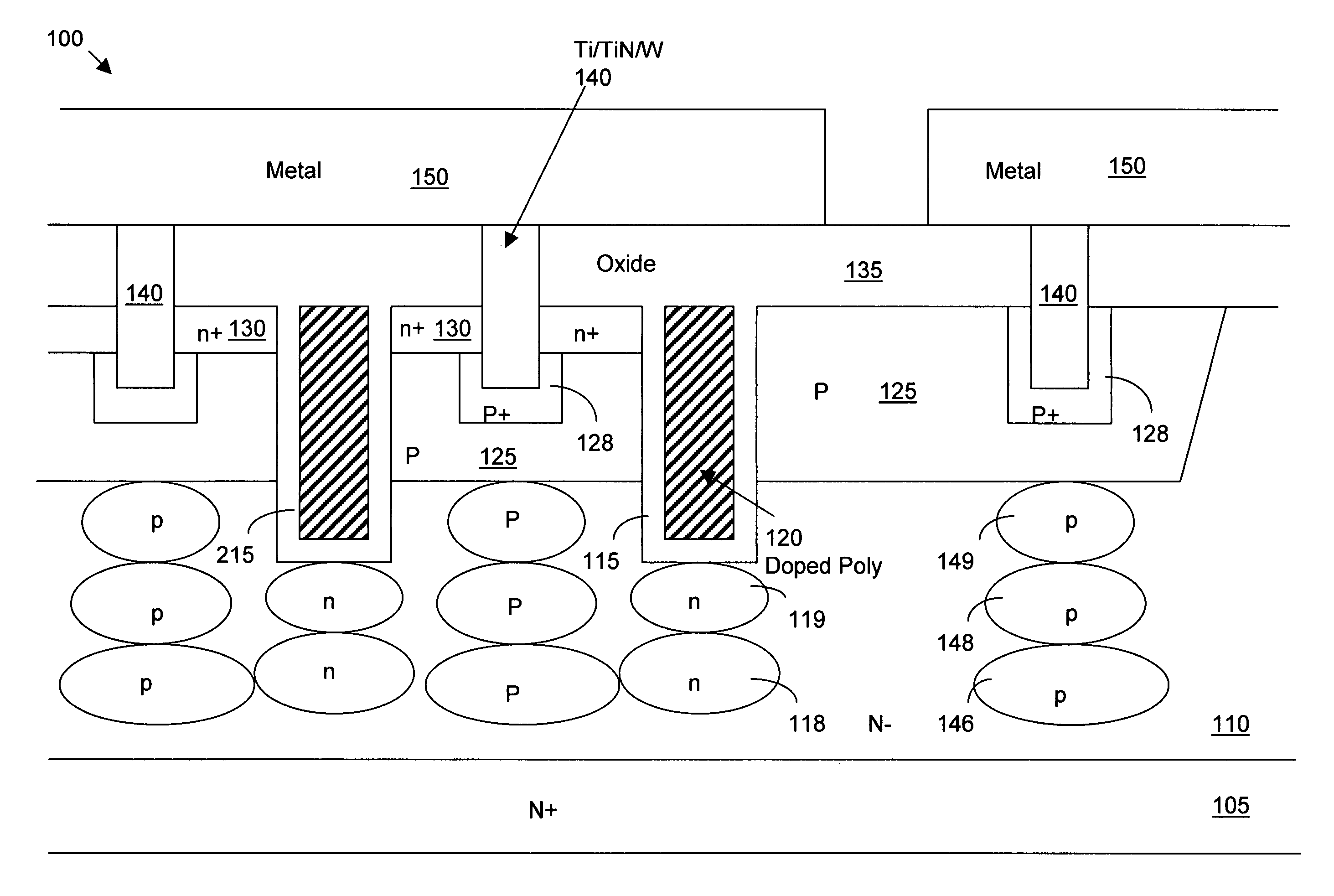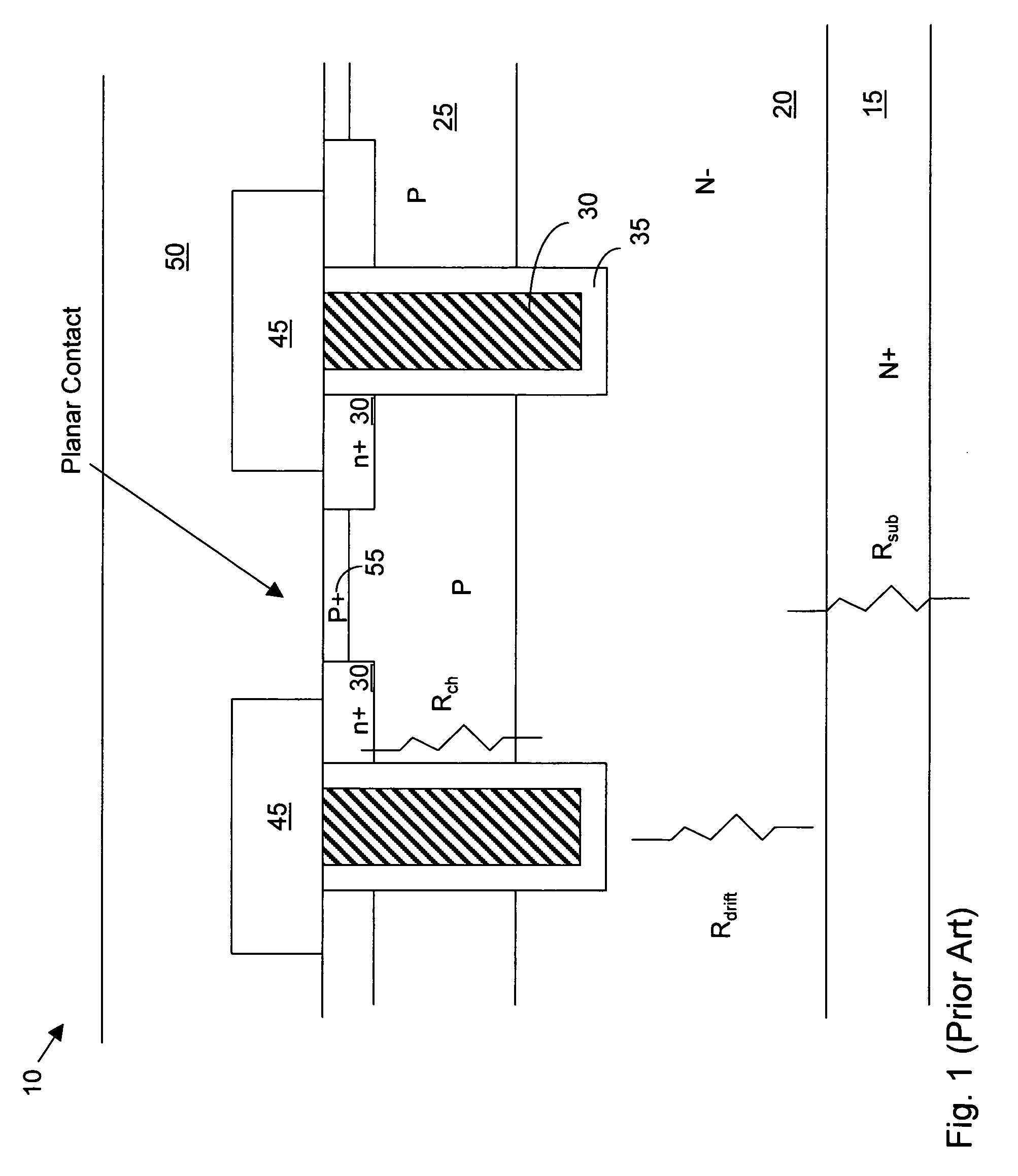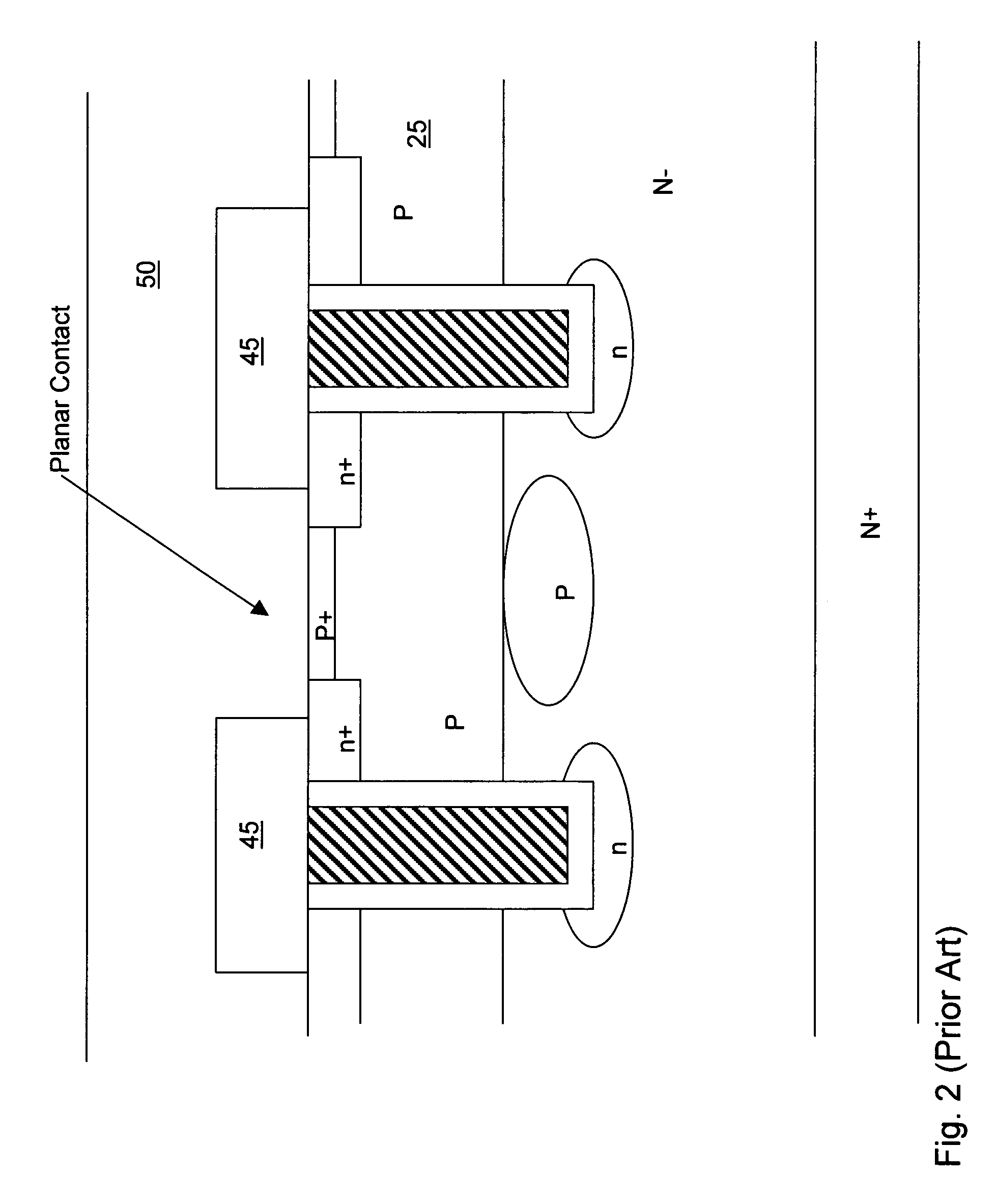High density trench MOSFET with reduced on-resistance
a technology of trench mosfet and rds resistance, which is applied in the field of cell structure and fabrication process of power semiconductor devices, can solve the problems of limiting the shrinkage of cell dimensions, cell density cannot be further increased, and the drain-to-source resistance rds is reduced, and the resistance of rds is reduced. , the effect of reducing the resistance of rds
- Summary
- Abstract
- Description
- Claims
- Application Information
AI Technical Summary
Benefits of technology
Problems solved by technology
Method used
Image
Examples
Embodiment Construction
[0019]Please refer to FIG. 3 for a first preferred embodiment of this invention where a metal oxide semiconductor field effect transistor (MOSFET) device 100 is supported on a N+ substrate 105 formed with an N epitaxial layer 110. The MOSFET device 100 includes a trenched gate 120 disposed in a trench with a gate insulation layer 115 formed over the walls of the trench. A body region 125 that is doped with a dopant of second conductivity type, e.g., P-type dopant, extends between the trenched gates 120. The P-body regions 125 encompassing a source region 130 doped with the dopant of first conductivity, e.g., N+ dopant. The source regions 130 are formed near the top surface of the epitaxial layer surrounding the trenched gates 125. The top surface of the semiconductor substrate extending over the top of the trenched gate, the P body regions 125 and the source regions 130 are covered with a NSG-BPSG protective layer 135.
[0020]For the purpose of improving the source contact to the sour...
PUM
 Login to View More
Login to View More Abstract
Description
Claims
Application Information
 Login to View More
Login to View More - R&D
- Intellectual Property
- Life Sciences
- Materials
- Tech Scout
- Unparalleled Data Quality
- Higher Quality Content
- 60% Fewer Hallucinations
Browse by: Latest US Patents, China's latest patents, Technical Efficacy Thesaurus, Application Domain, Technology Topic, Popular Technical Reports.
© 2025 PatSnap. All rights reserved.Legal|Privacy policy|Modern Slavery Act Transparency Statement|Sitemap|About US| Contact US: help@patsnap.com



